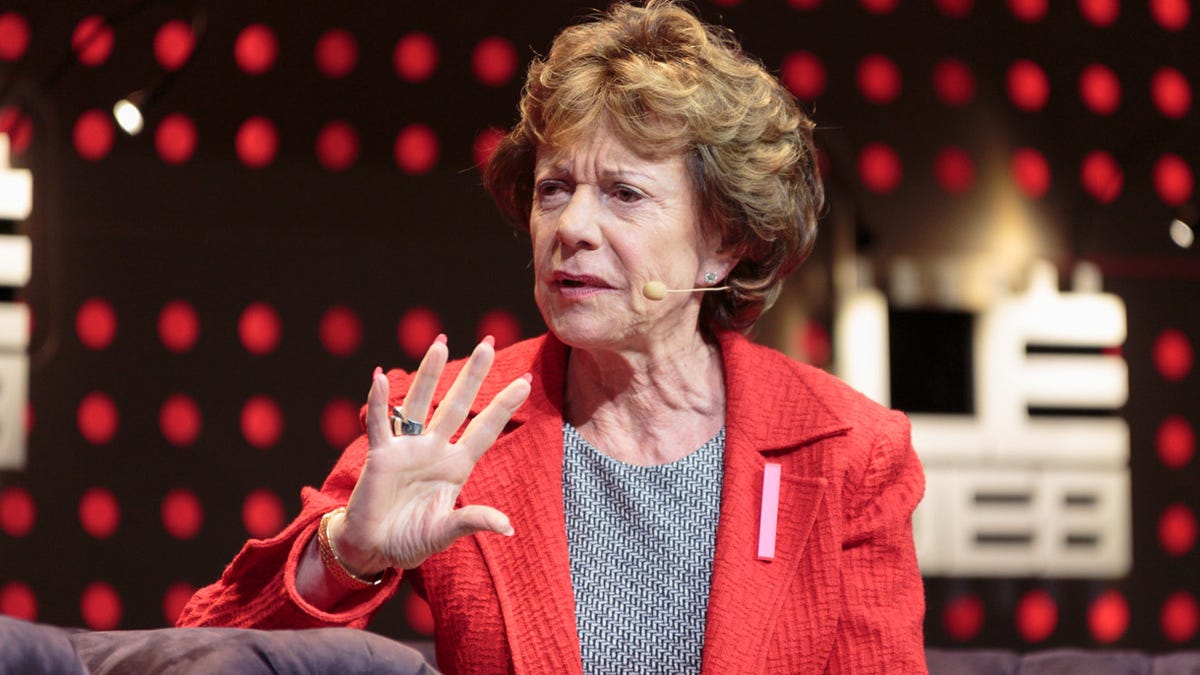Kroes: Unify the mobile market or Europe will fall farther behind
Urging compromises so that today's 27 separate mobile-network markets can be replaced in effect by just one, the European Commission's Neelie Kroes lays out several ideas for reform.

Neelie Kroes, the European Commission vice president in charge of the digital agenda, sketched out several steps toward the unified mobile-network market she believes is necessary to keep Europe's economy from falling behind.
In a speech Tuesday, she called for several steps to lower barriers that today make it hard for carriers to expand from one country to another and for customers to use mobile devices outside their home countries. Among the steps she suggested:
- A "passport" that let a carrier, once certified to operate a mobile network permission in one country, operate in other countries, too. That structure already is established with banking and broadcasting, she said.
With the current fragmented market, Europe has moved from mobile technology leader to also-ran, she said. "Handset makers largely ignore the European market when planning their latest gadget," she said, because of the difficulties of spanning multiple countries' markets. Good wireless and wired Net access is essential for many aspects of the future economy, not just the computing and telecommunications industries.
After Kroes first made her call for a unified telecom market three weeks ago, the GSMA, which represents many carriers across Europe, bridled at the idea of roaming reform.
Kroes, though, clearly thinks the carriers stand to benefit from a unified market, pointing to higher revenue per user in the United States.
"The status quo is not sustainable. In the telecoms sector itself, many are doing very badly. Revenues decline by 1 percent to 2 percent a year, while in the rest of the world they are increasing at 5 percent or more," Kroes said.
Carriers certainly aren't opposed to any changes: they often call for regulatory reform for spectrum auctions and an and for easier time with business deals that consolidate power in fewer hands. Competition rules in Europe can hold up acquisitions, but Kroes said on Twitter that she and Joaquin Almunia, the European commissioner responsible for competition, "are on [the] same page and in good cooperation" concerning the single-market issue.
It's not clear just how far Kroes is prepared to go, however. In a separate speech to the American Chamber of Commerce she pointed to the benefits of a single market that serves 300 million citizens compared to Europe's "tangle of twenty-seven different systems...that's a headache for operators who want to think big and compete globally."
But immediately afterward, she raised competitiveness concerns. "An effective duopoly" of AT&T and Verizon in the United States "makes life hard for new entrants, if not impossible."

